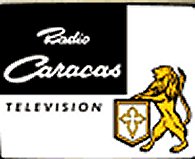-
(单词翻译:双击或拖选)
28 May 2007
 Venezuela's government has taken control of a private television station after a midnight deadline for the station to stop broadcasting. In Caracas, VOA's Brian Wagner reports that officials are using the station's frequency to broadcast a new public interest channel.
Venezuela's government has taken control of a private television station after a midnight deadline for the station to stop broadcasting. In Caracas, VOA's Brian Wagner reports that officials are using the station's frequency to broadcast a new public interest channel.
Venezuelan officials ordered Radio Caracas Television to relinquish1 control over its broadcasting facilities throughout the country at midnight, ending the private station's 53-year history on the air. Executives for RCTV had said they were cooperating with authorities to transfer control to officials in charge of transmitting programs for the newly created Venezuelan Social Television station.
The new station will air content from independent producers and community groups, which officials say will better represent the nation's people.
Earlier, thousands of RCTV supporters gathered outside the National Telecommunications Commission to condemn2 the government's refusal to renew the station's broadcasting license3. Police said 11 officers were injured by rocks and other objects thrown by protesters. Elsewhere in the capital, supporters of President Hugo Chavez gathered for street concerts to celebrate the transfer of control for the TV station.
At one pro-government event, Caracas Mayor Juan Barreto defended the decision against RCTV and warned protesters against committing violence.
Barreto said Venezuela has full freedom and respect for human rights. But he says authorities cannot allow the nation's institutions to be harmed, because of a sovereign decision by President Chavez.
Police and national guard troops were deployed4 across the city to guard against disruptions.
Hours before the midnight deadline, RCTV managing director Marcel Granier praised the work of some 3,000 employees at the nation's largest and most popular network. Granier also accused the government of seizing the company's broadcasting equipment without plans for restitution5.
Granier says the takeover changes the concept of private property and sets a very serious precedent6, which he says helps explain why investment levels are so low in the country.
The move against RCTV is the latest step in the socialist7 revolution of President Chavez to expand control over private industries. He recently took over the largest telephone company, and he has forced all foreign oil companies to give majority control over their operations to the government.
International human rights groups and press freedom organizations have condemned8 the decision against RCTV as a blow to free speech and democracy in Venezuela.
 收听单词发音
收听单词发音
1
relinquish

|
|
| v.放弃,撤回,让与,放手 | |
参考例句: |
|
|
|
2
condemn

|
|
| vt.谴责,指责;宣判(罪犯),判刑 | |
参考例句: |
|
|
|
3
license

|
|
| n.执照,许可证,特许;v.许可,特许 | |
参考例句: |
|
|
|
4
deployed

|
|
| (尤指军事行动)使展开( deploy的过去式和过去分词 ); 施展; 部署; 有效地利用 | |
参考例句: |
|
|
|
5
restitution

|
|
| n.赔偿;恢复原状 | |
参考例句: |
|
|
|
6
precedent

|
|
| n.先例,前例;惯例;adj.在前的,在先的 | |
参考例句: |
|
|
|
7
socialist

|
|
| n.社会主义者;adj.社会主义的 | |
参考例句: |
|
|
|
8
condemned

|
|
| adj. 被责难的, 被宣告有罪的 动词condemn的过去式和过去分词 | |
参考例句: |
|
|
|















